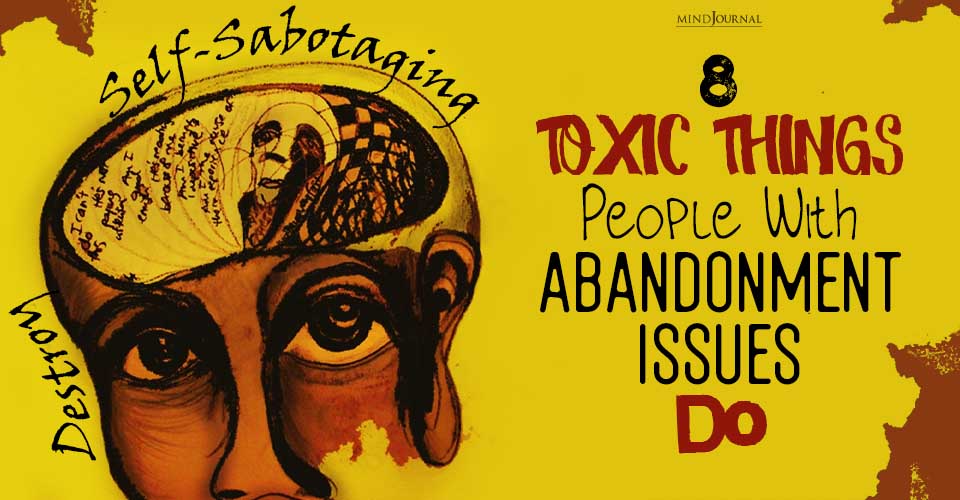If all you do in a relationship is argue and cry, then you must ask yourself are you in a toxic relationship?
Ah, the wonderful world of dating.
Wining, dining, and…toxicity? While it’s certainly not an item you want on the menu of your dinner for two, it happens more often than we’d like to admit. Abuse, gaslighting, manipulation – these are all obvious signs that you’re on a sinking boat; it’s time to pull anchor and abandon ship. Toxicity, in these forms, can be downright dangerous.
But toxicity doesn’t always hit like a ton of bricks. In fact, it can be stealthy and subtle, sneaking up on you when your guard is down. It can also come in covert forms that are not as serious as those mentioned above.
Still, toxic relationships rarely appear out of thin air. Odds are high that you can see it coming if you know what small signs to look for. Three of these include:
Related: 5 Signs Your Relationship Is Already Over and It’s Time To Let Go
Airing your grievances outside of the relationship:
People talk – there’s no way around it. Women, in particular, discuss their relationships – their worries and wants – with their fellow women. But dishing about how your partner never does the laundry right to your best friend over a caramel macchiato at the local Starbucks is one thing. Never ever discussing your issues with your partner is another.
This might be confusing because it is very healthy to speak to friends, coaches, therapists, family members, or coworkers about your relationship. You may need support, advice, reflection, a place to vent, or another point of view.
In that way, “airing your dirty laundry” can be a boon to your relationship. But avoiding discussing anything with your partner, avoiding working on the issues as one, and avoiding being vulnerable and honest with the person you love is a sign of impending toxicity in relationships. Airing your dirty laundry to others and never tending to it at home only leaves things permanently stained. Eventually, it leads to a toxic relationship.
What are your reasons for engaging in the above?
Take a minute and consider your motives. Are you genuinely looking for support and advice or are you building a committee that is against your partner outside of the relationship?
Are you venting or are you setting up a “you or him” scenario?
Are you being fair or are you only telling one side of the story so that you can be viewed as right?
Are you painting a complete picture or are you only speaking of the bad things without ever commenting on the good?
Related: Codependency in Toxic Relationships: Symptoms, Signs and How To Recover
Because, if the bad is all your friends and family are hearing, they’re going to whisper in your ear one word: RUN. And this can cause toxicity to flourish. You’ll train them to reflect back on the negatives of your partner which creates a feedback loop that just grows stronger in time.
Watch out this video to know about hidden signs of your toxic relationships:
An inability to repair and apologize:
According to John Gottman, a Relationship Researcher, one of the key indicators that a relationship will work out is dictated by whether the partners are open to being influenced by each other. Think of this in terms of conflict: if no one is willing to apologize and take ownership of their wrongdoings, then they’re going against this key principle. In other words, you’re not willing to be influenced by the other person.
An inability to apologize goes beyond stubbornness; it’s an inability to see another’s point of view and, most importantly, it’s an inability to validate their emotional experience.
It tells the person, “Your hurt is your problem and not mine.” And this creates a psychological and emotional gap. It’s a chasm that begins to widen more and more, building a perfect sinkhole of resentment as it gapes open further and swallows the union whole.
Covert hostility:
Covert hostility is when you’re engaging in activities that are rooted in contempt, however big or small (and often they are small). It can be difficult to recognize these because they might be so tiny that they’re micro-hostilities.
These micro-hostilities aren’t always words (though they can be): they may also be gestures communicated through body language. A sigh, an eye roll, a shake of the head, a jerky wave of the hand, a shoulder shrug. Covert hostility can also hide inside tone, coming out in not what you say but how you say it.
Related: The Covert Narcissist: Angel On The Outside, Devil On The Inside
Even subtle changes in body language and tone can convey a negative message like, “I just don’t want to deal with you right now” or “You’re being ridiculous” or “You’re overreacting.” The result is the invalidation of the other person’s feelings.
Could you relate to these covert signs of a toxic relationship? Leave a comment below
Written by – Clayton Olson
Originally appeared on – Clayton Olson
Clayton Olson is an International Relationship Coach, Master NLP Practitioner, and Facilitator. He delivers private virtual coaching sessions and leads online group workshops. Register for his free webinar that reveals the 3 Keys to Attracting and Keeping a High-Quality Man or grab his free guide 8 Secrets To Create A Rock Solid Relationship.










Leave a Reply